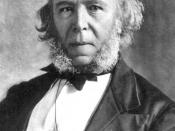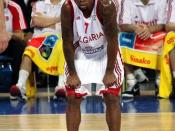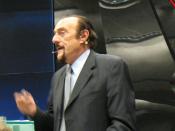Humans are pessimistic and often need to consult with their own conscience before making certain decisions in life. Humans can be good, bad, or maybe even both, and the characteristics they portray represent who they are. In the Milgram and Zimbardo experiments, volunteers were chosen to participate in a group project. Of the two experiments, the subjects were either tested with electric shocks or placed in a prison, and the scientists were able to observe the subjects' behaviors. Milgram and Zimbardo's experiment was psychologically disturbing and harsh. The way scientists treated their subjects and how the subjects responded to the mistreatment display positive and negative human characteristics. The environment that a person is situated in conditions their behavior, and the society can influence an individual to behave in a certain way by setting social norms. The society shapes human nature. It supplements ideas individuals use to make decisions in life and confirms with their conscience if the choices they make are morally valid.
Human conscience is an inborn instinct, a "gut" feeling that drives a person to think twice about their decision. While human instincts are inborn, society influences one's decisions in life.
Humans instinctively adapt to a situation without being taught. In the Zimbardo experiment, "guards were told that they must maintain law and order . . . that they were responsible for handling any trouble" (Zimbardo 367). The guards had no prior training how to be guards, and they trusted their own instincts to act strictly and harshly towards the prisoners. The guards, " moved with apparent ease into their roles" (367). Zimbardo suggests that the guards knew how to imitate the roles of guards from the media. As one guard quotes, "I was surprised at myself . . . I made them call each other...


